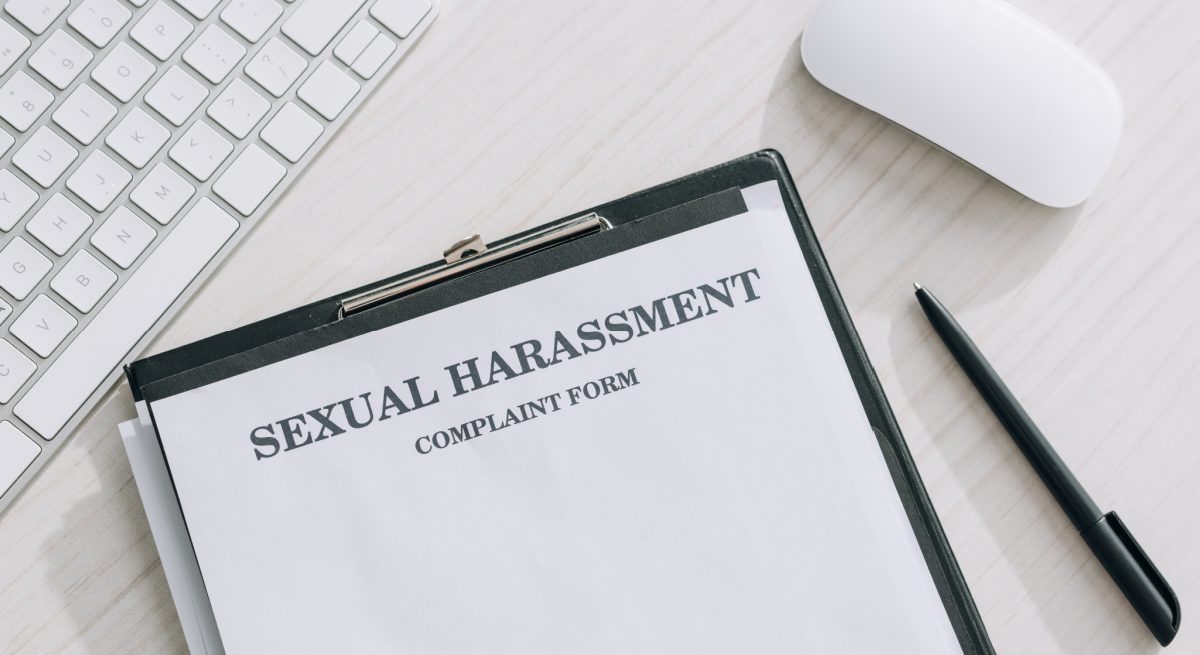April Is Sexual Assault Awareness Month: Here are Seven Items Your Restaurant Needs in its Sexual Harassment Policy
3 Min Read By Krista Arnhoelter
Did you know that more sexual harassment claims are filed in the restaurant industry than in any other industry? As many as 90 percent of women and 70 percent of men in the industry reportedly experience some form of sexual harassment, according to the Harvard Business Review.
Sexual Assault Awareness Month (SAAM) in April is an opportunity for restaurant and bar owners to review existing policies and develop new ones. Society Insurance put together seven items restaurants should include in their sexual harassment policy.
Definition of Sexual Harassment in the Workplace
Your policy must include a clear definition of sexual harassment. The Equal Employment Opportunity Commission (EEOC) has clear guidelines online to use in your policy. Discuss different scenarios and give various examples of what constitutes sexual harassment or does not constitute sexual harassment. Employees may have a different idea of what is considered sexual harassment.
Scope
Your sexual harassment policy should be thorough and expansive. Include who is expected to abide by the sexual harassment policy. What if an incident occurs outside of the restaurant or bar? What if the incident is after working hours? Be as detailed as possible.
Internal Complaint Procedure
This section should discuss how management and/ or HR will handle the sexual harassment complaint, step-by-step. Discuss all of the phases of the procedure including investigation, resolutions and appeals.
Every situation is unique so this section shouldn’t be too detailed, but rather cover the steps of addressing, documenting, and completing the procedure.
How to File a Complaint with the EEOC, if Desired
Whether an employee is the victim of sexual harassment or a witness to an incident, it is critical that the employer provide steps for filing a sexual harassment complaint.
Employee Rights
Refer to your state’s employee rights and make sure to highlight them in this section. This is also a great place to list local relevant resources available to the people involved.
While Texas does not have a mandatory legal requirement for private employers to provide sexual harassment training in the workplace, it is highly recommended. State legislation continues to make revisions to sexual harassment laws, so it’s important for Texas business owners to keep up with changing state laws. Each state’s specific requirements for 2021 can be found here.
Retaliation Procedures
Individuals who have been subjected to sexual harassment or witnessed it must know they have protection against later vengeful acts. Reaffirm that every employee has a duty to report. Outline what you will do to keep those who report safe and reassure them that their job will be safe.
Disciplinary Action
Explain the disciplinary process for your restaurant or bar. For example, does a first-time offender who made inappropriate jokes receive a verbal warning? Are second-time offenders demoted, transferred, or fired? Explain the process and potential outcomes.
If you don’t know where to start in creating a policy, we recommend ServSafe’s Sexual Harassment Prevention for the Restaurant Industry program to help create a harassment-free workplace. Most importantly, it is in your best interest to consult with an attorney in your state to review and discuss your sexual harassment policy in detail before rolling out to employees.
Sexual harassment should not be brushed off as “part of the job.” Aside from the trauma that can accompany sexual harassment, research has shown harassment in the workplace increases employee stress, anxiety, burnout and turnover. Additionally, it’s the employer’s legal obligation to protect their employees from sexual harassment as stated by the EEOC.
Real, tactical plans are the key to addressing and curbing harassment. It starts with business owners and managers to create a safe working environment and lay out a clear path should incidents occur.
This article is not a template. It is meant to be a guide as to the questions and issues that should be addressed when drafting a policy. The links provided are a convenience and for informational purposes only; they do not constitute legal advice or an endorsement or approval by Society Insurance of any of the statements, or opinions, or content of the organization. Society Insurance bears no responsibility for the accuracy or content of linked or cited material. This article is not intended to give legal opinions or provide any kind of legal counsel. For a legal opinion, please seek legal counsel from a qualified attorney.


